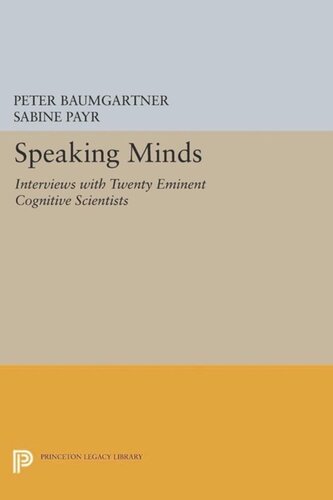

Most ebook files are in PDF format, so you can easily read them using various software such as Foxit Reader or directly on the Google Chrome browser.
Some ebook files are released by publishers in other formats such as .awz, .mobi, .epub, .fb2, etc. You may need to install specific software to read these formats on mobile/PC, such as Calibre.
Please read the tutorial at this link: https://ebookbell.com/faq
We offer FREE conversion to the popular formats you request; however, this may take some time. Therefore, right after payment, please email us, and we will try to provide the service as quickly as possible.
For some exceptional file formats or broken links (if any), please refrain from opening any disputes. Instead, email us first, and we will try to assist within a maximum of 6 hours.
EbookBell Team

4.0
76 reviewsFew developments in the intellectual life of the past quarter-century have provoked more controversy than the attempt to engineer human-like intelligence by artificial means. Born of computer science, this effort has sparked a continuing debate among the psychologists, neuroscientists, philosophers,and linguists who have pioneered--and criticized--artificial intelligence. Are there general principles, as some computer scientists had originally hoped, that would fully describe the activity of both animal and machine minds, just as aerodynamics accounts for the flight of birds and airplanes? In the twenty substantial interviews published here, leading researchers address this and other vexing questions in the field of cognitive science.
The interviewees include Patricia Smith Churchland (Take It Apart and See How It Runs), Paul M. Churchland (Neural Networks and Commonsense), Aaron V. Cicourel (Cognition and Cultural Belief), Daniel C. Dennett (In Defense of AI), Hubert L. Dreyfus (Cognitivism Abandoned), Jerry A. Fodor (The Folly of Simulation), John Haugeland (Farewell to GOFAI?), George Lakoff (Embodied Minds and Meanings), James L. McClelland (Toward a Pragmatic Connectionism), Allen Newell (The Serial Imperative), Stephen E. Palmer (Gestalt Psychology Redux), Hilary Putnam (Against the New Associationism), David E. Rumelhart (From Searching to Seeing), John R. Searle (Ontology Is the Question), Terrence J. Sejnowski (The Hardware Really Matters), Herbert A. Simon (Technology Is Not the Problem), Joseph Weizenbaum (The Myth of the Last Metaphor), Robert Wilensky (Why Play the Philosophy Game?), Terry A.Winograd (Computers and Social Values), and Lotfi A. Zadeh (The Albatross of Classical Logic). Speaking Minds can complement more traditional textbooks but can also stand alone as an introduction to the field.
Originally published in 1995.
The Princeton Legacy Library uses the latest print-on-demand technology to again make available previously out-of-print books from the distinguished backlist of Princeton University Press. These editions preserve the original texts of these important books while presenting them in durable paperback and hardcover editions. The goal of the Princeton Legacy Library is to vastly increase access to the rich scholarly heritage found in the thousands of books published by Princeton University Press since its founding in 1905.